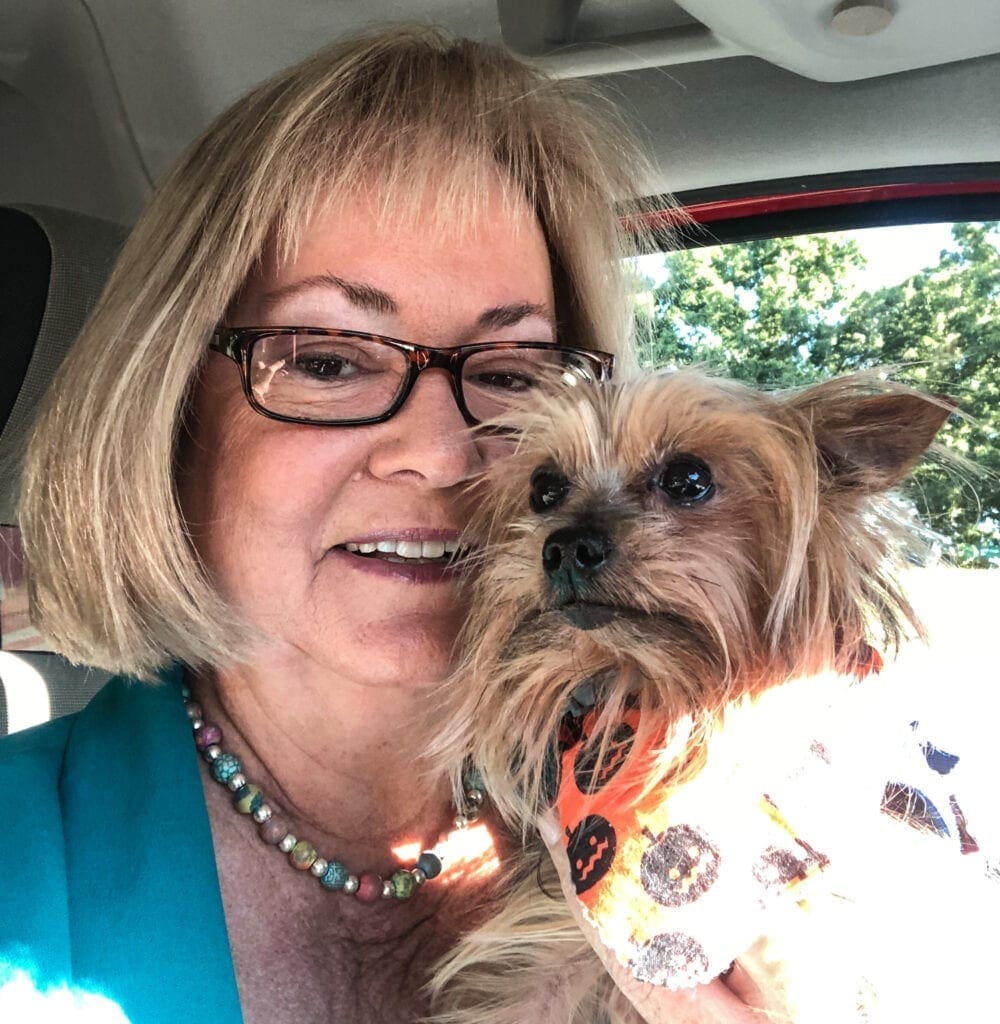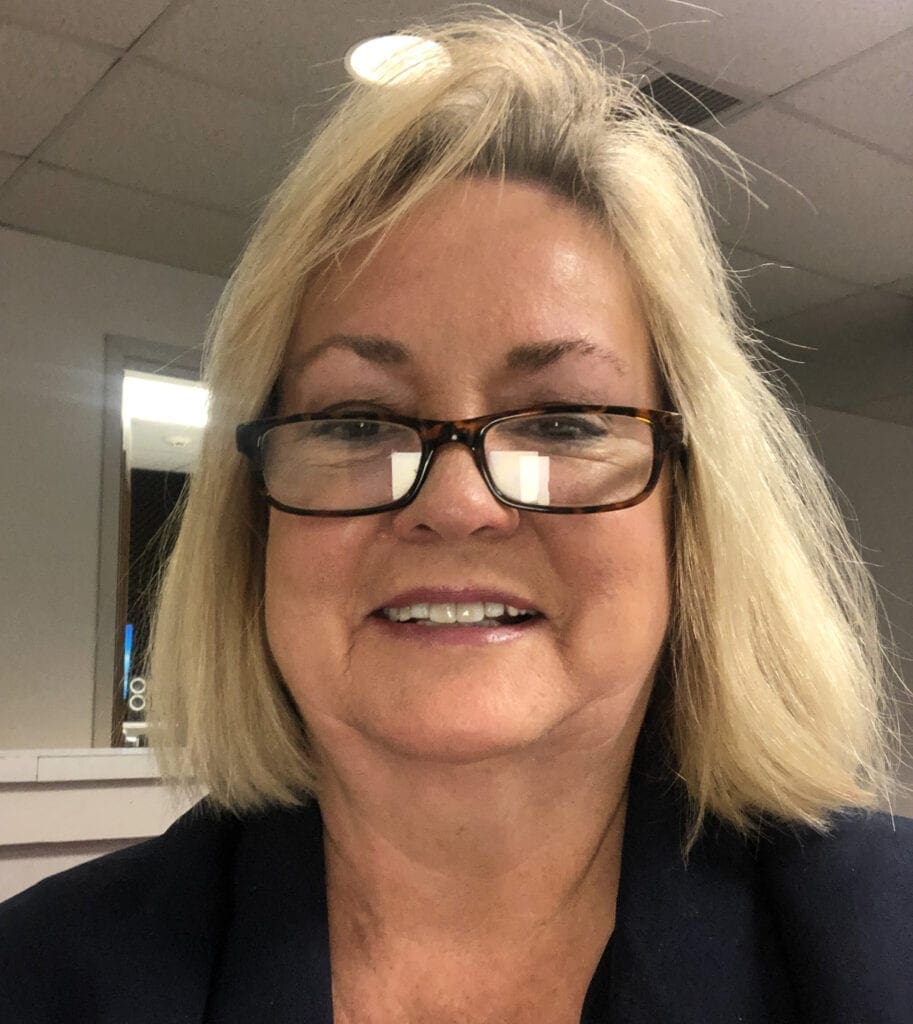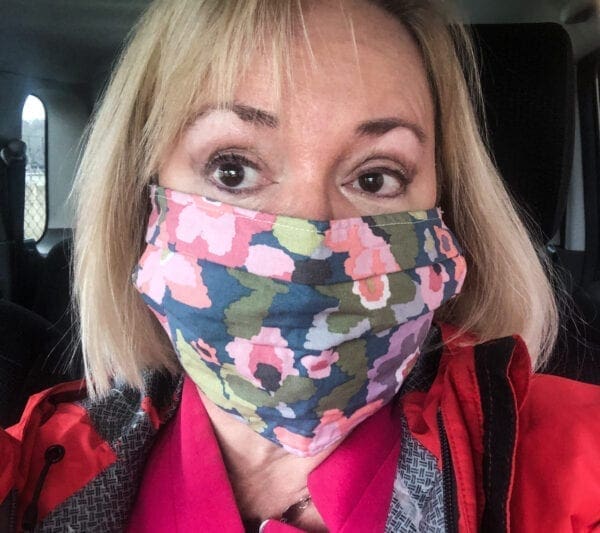She’s been there and seen that, and her reporting has made us smile, laugh, and yes, cry, too.
D.K. has been on our televisions most of our lives and that is because she started with WTRF TV-7 when she was still a kid, too, as far as the media business is concerned. Wright began her career in Wheeling 40 years ago after earning her journalism career from West Virginia University, and ever since, she and her husband of 35 years, Chuck Saus, have remained right here.
Along with her duties at WTRF, D.K. has become a senior warden at St. Luke’s Episcopal Church, and she is also a members of the Belmont County Dangerous Wild Animal Response Team … and yes, she has been voted as most likely to adopt a dog with bad behavior. Her and her husband are certified master gardeners and they are among the founders of the Fran McNeil Memorial Community Garden on Wheeling Island.
Why? Because as she has reported on us during decades, D.K. wanted to become one of us, and that’s a goal she’s most definitely achieved along with all of the accolades her work has attracted.

What has been the most difficult part about covering this pandemic?
The most difficult part for me about covering the pandemic was learning what the people who tested positive had to go through. The news conference where they announced the first two Belmont County cases was jarring. This husband and wife, diagnosed with a potentially deadly disease, were simply sent home and ordered to self-quarantine. It didn’t seem like medical care as we know it. It sounded primitive and barbaric. I kept asking questions. Aren’t they in the hospital? Is a caregiver there with them? Are they on strong antibiotics? The answers were no, no, no. I felt fear and despair on their behalf. As days went by, I came to realize this was pandemic protocol—the new normal.
She got better, he got worse. He was hospitalized, placed on a ventilator. Rumors swirled that he was not expected to live. I was profoundly relieved to learn that they both recovered.
What have you covered over the years that you can compare to reporting on this pandemic?
There was the West Virginia Penitentiary riot and escape. There was the Wegee and Pipe Creek Flood. There was the oil spill on the Ohio River. There was 9-11.
But the COVID-19 pandemic has eclipsed them all. It baffles medical experts. It separates families. It leaves people dying, without being able to hold their loved ones’ hands. It is horrific.

With so many events canceled already for the summer months, what kinds of stories will you look for during the next few months?
I will look for the “If Not This, Then What?” stories.
If meat becomes scarce, what do nutritionists suggest for good replacements? If festivals are canceled, then what do tourism or travel experts suggest as alternatives? If the Soup Kitchen, Public Library and Catholic Charities all remain closed, then where will homeless people go to escape the summer heat?
If swimming pools don’t reopen, what are alternative activities for kids?
So, why did I stay in Wheeling? it would be pretty hard to imagine being anywhere else.
I came to Wheeling for a job and found a home. I went to St.Luke’s Episcopal Church on Wheeling Island for one church service and kept going back. I went to Towngate Theatre to try out for a play and met the man I would marry.
I applied for a job at WTRF and ended up with a satisfying career and countless beloved colleagues and friends. I went to the Bridge Tavern for a Greek Salad and met a quirky, fun and loyal group of friends. I went to the Belmont County Animal Shelter to adopt a dog, and over the years I kept going back again and again!

Which story you have covered during your career still sticks with you, and why?
The Wegee & Pipe Creek Flood (“Shadyside Flood”) was sudden, shocking and tragic. People described it as a wall of water. Bodies were found for weeks afterward, many showing up at the locks and dam. It smelled awful and felt hopeless.
News crews came in from all over the world. I interviewed a man in a truck who said, “I lost my Rose.” His wife Rose had been washed away and killed in Pipe Creek. That interview was picked up and carried by CBS and was broadcast worldwide.
I remember the black suit and pink blouse I was wearing. I remember the heat, the mud, the humidity. And I remember the lost, haunted look on that man’s gaunt, exhausted face as tears ran down his cheeks as he said those four words.
“I lost my Rose.”


